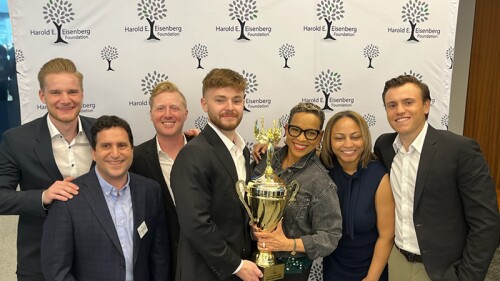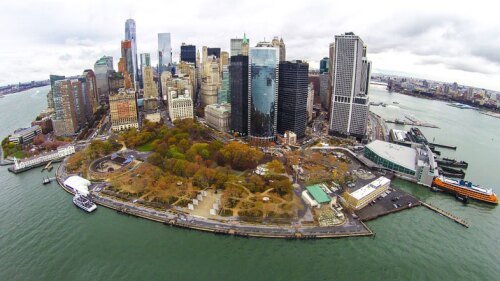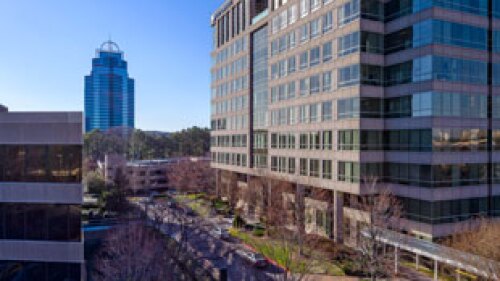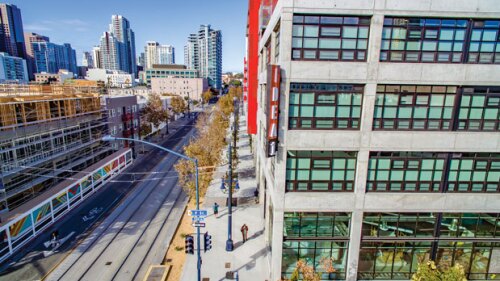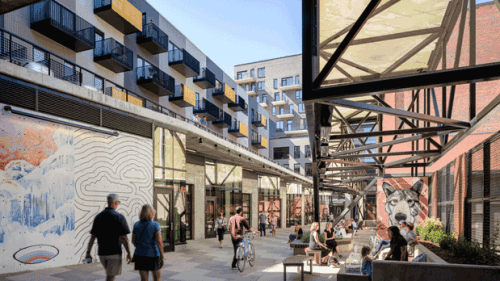Urban Design
Discover Urban Design articles that push creative thinking, improve city form, and inspire resilient, people‑centered spaces.
Jeff Speck and I first met in 2004. I had just been elected mayor of Oklahoma City, and I was invited to Charleston for an event hosted by the Mayors’ Institute on City Design. Jeff was one of the design professionals lending expertise to mayors facing complex planning issues.
When I took office as mayor of Oklahoma City in 2004, my goals were similar to any other mayor’s: to improve our economy, raise our national profile, and protect our citizens. We had an intersection with safety concerns, and our planning department was pushing the idea to me and the City Council to install a traffic circle. At the time, traffic circles were new to this generation of Oklahoma City drivers, but we soon found out that they were cost-effective and most certainly safer.
Can third spaces help downtowns bounce back from the pandemic?
Marshall Bennett Institute of Real Estate was awarded first place in the graduate division of the 13th annual Harold E. Eisenberg Foundation Real Estate Challenge, which culminated with final presentations in April at the offices of Holland & Knight, 150 N. Riverside Plaza in Chicago.
Four teams, representing Harvard University, the University of Virginia, and the University of California, Berkeley, have been selected as finalists in the 21st annual ULI Gerald D. Hines Student Urban Design Competition, an event that challenges teams of graduate students to devise a comprehensive design and development plan for a real-world urban site.
Growth pours north out of Dallas, the city nicknamed “the Big D,” and one result has been a boom in the suburb of Frisco, which earned the title of the nation’s fastest-growing city of the 2010s, according to the U.S. Census Bureau. Frisco’s growth has spread to nearby Celina, which has grown 10x since 2010.
Six developments from around the world have been selected as winners of the 2022 ULI Global Awards for Excellence. This year’s winners include two from North America, two from Europe, and two from the Asia Pacific region.
As climate change worsens and the intensity of extreme weather–related events increases, meeting modern building codes may not be enough. Municipalities, nonprofit organizations, and industry groups are developing climate resilience design standards and tools, some of which are required or incentivized for publicly funded projects, and others of which may become expected or required for commercial real estate transactions.
Atlanta has a deluge of existing 1980s, 1990s and 2000s-vintage office space, and there’s an opportunity to make these buildings more efficient and better for the environment.
Suburban greenfield projects fade away as stakeholders focus on connecting cities and reinvesting in areas with preexisting infrastructure and transit.
Ensuring inclusion and access to all, embodying Hong Kong’s societal values and global identity, safeguarding Hong Kong’s heritage for future generations, and committing to sustainability are among some of the ideas suggested in a new ULI report on how a Hong Kong harbor development can best serve the local community.
In Denver’s Lower Downtown (LoDo) neighborhood, an interesting addition to the urban fabric has emerged over the past five years in the form of activated streets and alleyways that serve as a connective tissue for art, entertainment, culture, and gathering. In early October, ULI Colorado’s Building Healthy Places committee hosted a panel to discuss our new age of activated alleyways.



![Credit Zack Benson Courtesy of Gensler_Fifth + Broadway 1[1].jpg](https://cdn-ul.uli.org/dims4/default/1665a7b/2147483647/strip/true/crop/1205x677+0+261/resize/500x281!/quality/90/?url=https%3A%2F%2Fk2-prod-uli.s3.us-east-1.amazonaws.com%2Fbrightspot%2Fef%2F2a%2F67a6e80c48ed84e3da6e2e06b218%2Fcredit-zack-benson-courtesy-of-gensler-fifth-broadway-11.jpg)
